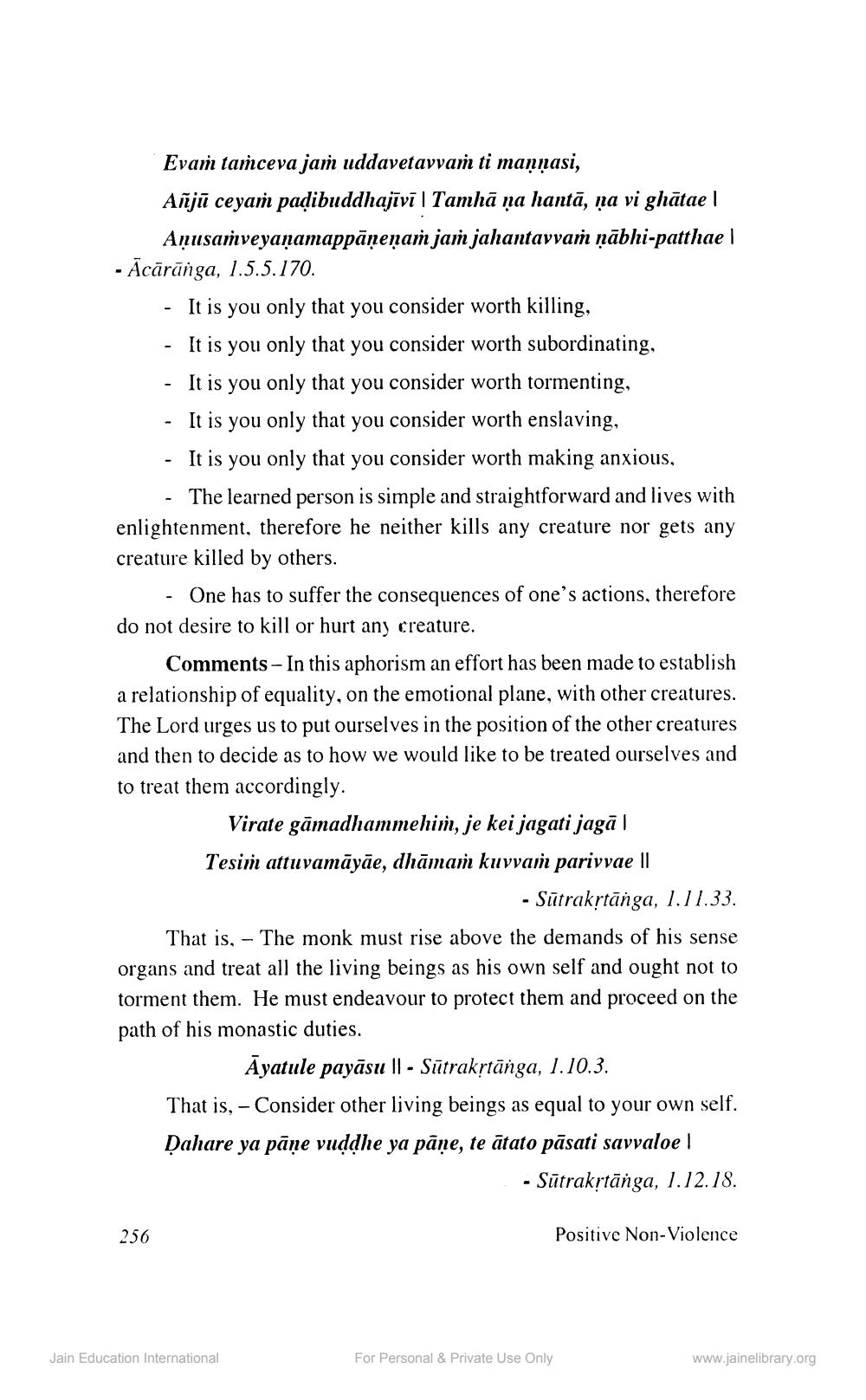________________
Evam tamceva jam uddavetavvaṁ ti maṇṇasi,
Anju ceyam paḍibuddhajīvī | Tamhā ņa hantā, ņa vi ghātae |
Anusamveyaṇamappāņeṇam jam jahantavvam nabhi-patthae - Acaranga, 1.5.5.170.
-
It is you only that you consider worth subordinating,
It is you only that you consider worth tormenting,
It is you only that you consider worth enslaving,
It is
you only that you consider worth making anxious, The learned person is simple and straightforward and lives with enlightenment, therefore he neither kills any creature nor gets any creature killed by others.
-
It is you only that you consider worth killing,
-
256
One has to suffer the consequences of one's actions, therefore do not desire to kill or hurt any creature.
Comments - In this aphorism an effort has been made to establish a relationship of equality, on the emotional plane, with other creatures. The Lord urges us to put ourselves in the position of the other creatures and then to decide as to how we would like to be treated ourselves and to treat them accordingly.
Virate gamadhammehim, je kei jagati jagā | Tesim attuvamāyāe, dhāmam kuvvam parivvae ||
- Sūtrakṛtānga, 1.11.33.
That is, The monk must rise above the demands of his sense organs and treat all the living beings as his own self and ought not to torment them. He must endeavour to protect them and proceed on the path of his monastic duties.
Ayatule payāsu ||- Sūtrakṛtānga, 1.10.3.
That is, - Consider other living beings as equal to your own self. Dahare ya pane vuddhe ya pane, te ātato pāsati savvaloe
- Sūtrakṛtānga, 1.12.18.
Jain Education International
For Personal & Private Use Only
Positive Non-Violence
www.jainelibrary.org




